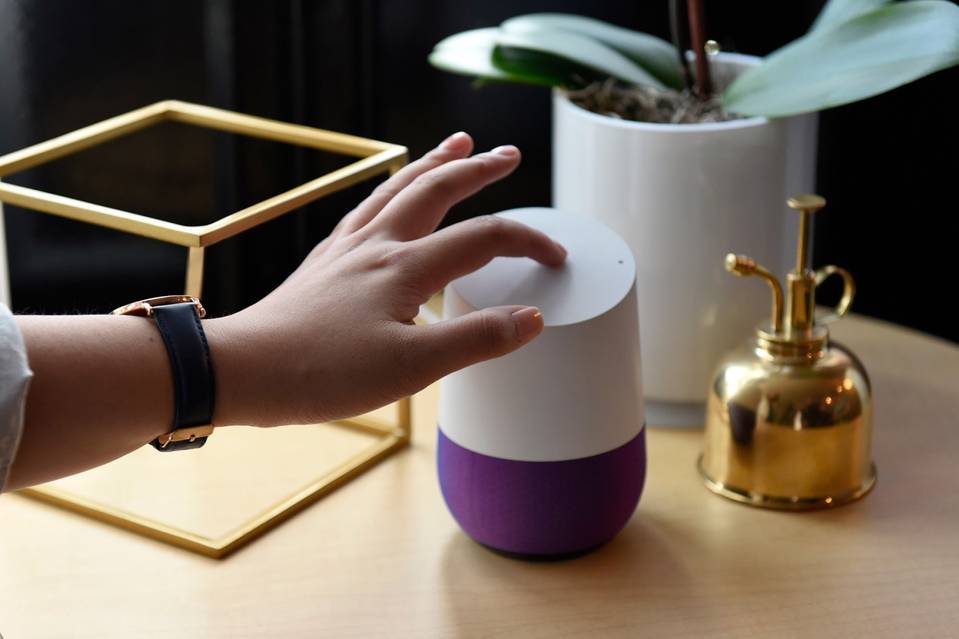New assistants may be a box on the table
copyright by www.wsj.com
In 2016, Silicon Valley obsessed over how text-based bots in apps like Slack could make employees more efficient, turning complicated tasks or forms into conversational texts. Now, following the success of Amazon Inc.’s Alexa and Alphabet Inc.’s Google Home, people in the technology industry are increasingly thinking about how such voice-activated devices can be made useful in the workplace.
Few challenges remain
The products aren’t quite ready for office prime time yet. The workplace offers challenges that experts say intelligent assistants built for home use so far haven’t effectively met, mostly in the area of voice recognition. Still, some potential customers aren’t waiting. Workers at Goodwinds Inc. in New York City, for example, have used an Amazon Echo attached to the office ceiling for such tasks as adding events to their calendars and setting reminders for meetings, says Vinay Patankar, chief executive of the workflow management startup.
And sometimes they use it just for fun. When someone makes a big sale, they say, “Alexa, play the money song,” Mr. Patankar says. Then “Cash Machine” by Big Baby D.R.A.M. begins to play. Each day, the speaker also reminds everyone it’s time for lunch with the voice of rapper Missy Elliott. Whether for work or home, intelligent assistants are part of a trend that has brought voice-control capabilities to such devices as cellphones, connected cars and certain home appliances. Apple Inc. introduced voice-recognition technology to customers’ pockets with the release of iPhone 4s with Siri in 2011.
 Market is ready for intelligent assistants
Market is ready for intelligent assistants
Roger Lee, a general partner at Silicon Valley venture-capital firm Battery Ventures, believes that technology for the workplace has been following consumer trends, and he thinks voice-enabled intelligent assistants will be next. Mr. Lee is an investor in Workfit, a startup that is developing an office assistant and meeting facilitator it calls Eva. Relying on voice controls and artificial intelligence, Eva aims to make meetings more efficient by, among other things, creating a searchable record of what is said, highlighting decisions and performing tasks on command such as sending slides or documents to specific participants. Market research has shown that many workers say they are ready for an AI-based office assistant. In a 2016 survey of workers’ attitudes toward technology conducted by Dell Inc., Intel Corp. and consultants Penn Schoen Berland, 30% of employees around the world chose “digital helper” as the potential use of artificial intelligence that they would be most excited about in their jobs […]
read more – copyright by www.wsj.com


New assistants may be a box on the table
copyright by www.wsj.com
In 2016, Silicon Valley obsessed over how text-based bots in apps like Slack could make employees more efficient, turning complicated tasks or forms into conversational texts. Now, following the success of Amazon Inc.’s Alexa and Alphabet Inc.’s Google Home, people in the technology industry are increasingly thinking about how such voice-activated devices can be made useful in the workplace.
Few challenges remain
The products aren’t quite ready for office prime time yet. The workplace offers challenges that experts say intelligent assistants built for home use so far haven’t effectively met, mostly in the area of voice recognition. Still, some potential customers aren’t waiting. Workers at Goodwinds Inc. in New York City, for example, have used an Amazon Echo attached to the office ceiling for such tasks as adding events to their calendars and setting reminders for meetings, says Vinay Patankar, chief executive of the workflow management startup.
And sometimes they use it just for fun. When someone makes a big sale, they say, “Alexa, play the money song,” Mr. Patankar says. Then “Cash Machine” by Big Baby D.R.A.M. begins to play. Each day, the speaker also reminds everyone it’s time for lunch with the voice of rapper Missy Elliott. Whether for work or home, intelligent assistants are part of a trend that has brought voice-control capabilities to such devices as cellphones, connected cars and certain home appliances. Apple Inc. introduced voice-recognition technology to customers’ pockets with the release of iPhone 4s with Siri in 2011.
Roger Lee, a general partner at Silicon Valley venture-capital firm Battery Ventures, believes that technology for the workplace has been following consumer trends, and he thinks voice-enabled intelligent assistants will be next. Mr. Lee is an investor in Workfit, a startup that is developing an office assistant and meeting facilitator it calls Eva. Relying on voice controls and artificial intelligence, Eva aims to make meetings more efficient by, among other things, creating a searchable record of what is said, highlighting decisions and performing tasks on command such as sending slides or documents to specific participants. Market research has shown that many workers say they are ready for an AI-based office assistant. In a 2016 survey of workers’ attitudes toward technology conducted by Dell Inc., Intel Corp. and consultants Penn Schoen Berland, 30% of employees around the world chose “digital helper” as the potential use of artificial intelligence that they would be most excited about in their jobs […]
read more – copyright by www.wsj.com
Share this: